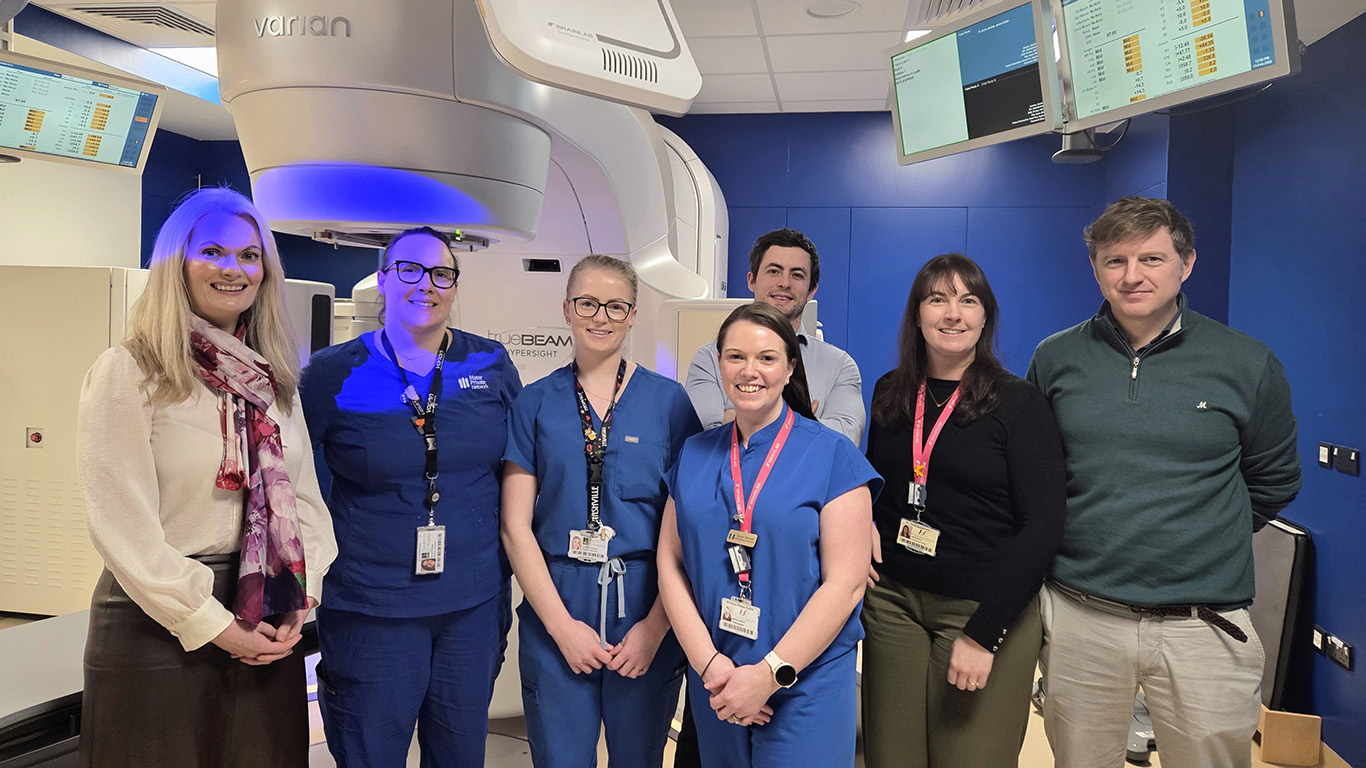23rd June 2025
Healthy Ageing Through the Decades: Expert Corner with Dr. Shane O’Hanlon
Healthy ageing is a lifelong journey. By beginning to make mindful choices early, you can positively impact your health later in life. However, it is never too late to begin making positive changes. Healthy ageing is not solely about the latter years; it is about consistent habits and small, sustainable actions that build up over time. While many people associate ageing with their 60s and 70s, the foundation for a fulfilling life can be built as early as in your 20s and 30s.
.jpg?sfvrsn=3548952b_0)
In Your 20s: Laying the Foundation
Your 20s are often filled with many life transitions, including going to university, beginning your first job, or moving away from home. During this exciting time, it can be easy to focus on the moment and forget about your long-term health. However, this is the perfect time to lay down the foundation for healthy habits that will serve you well throughout your life.
- Physical activity: exercise is essential, yet busy schedules may make it harder to prioritise it. Whether it is joining a gym, walking regularly, or playing sports, staying active is crucial for your long-term health.
- Social connections: cultivating and maintaining friendships is vital for emotional well-being. Make time for social activities, whether it is reconnecting with old friends or making new ones.
- Routine health checks: register with your local GP and make the time to book in for routine check-ups.
- Stress management: learn how to manage stress through yoga, meditation, or mindfulness practices.
In Your 30s: Building on Your Habits
By your 30s, life tends to settle into a rhythm. Many people have established careers, consider starting a family, and reach significant milestones. However, this can also be a time filled with stress as you juggle work, relationships, and personal goals.
- Exercise and stress management: prioritise regular physical activity to manage stress and improve your overall health. Exercise is one of the most effective ways to reduce stress and maintain a healthy body and mind.
- Health check-ups: continue attending regular health checks.
In Your 40s: Adapting to Changes
As you enter your 40s, maintaining the healthy habits you have established is crucial, while being mindful of new health considerations.
- Weight management and health screenings: weight control and regular check-ups for conditions such as high blood pressure, diabetes, and eye health become more important as you age.
- Exercise for strength: incorporating weight training can help combat muscle loss that naturally occurs with age and keep you strong. Activities like gardening can help you with staying physically active while also offering a stress-relieving component too.
- Planning ahead: although you might not want to think about it in your 40s, consider creating a will or setting up an Enduring Power of Attorney. These proactive measures can provide peace of mind for the future.
In Your 50s: Focus on Maintenance & Repair
The 50s are often referred to as the "era of repair," as health concerns may begin to surface. Joint issues, heart health, and bone density are common issues during this decade, but it is also a time when many people report an increase in their happiness levels. Stability in your career, family life, and personal goals can make your 50s a time of personal growth and contentment.
- Exercise for flexibility & strength: gentle activities like yoga can help maintain mobility and reduce joint discomfort. Strength training remains important to combat muscle mass loss that occurs as we age.
- Regular health screenings: routine tests for heart health, cancer, and bone density become more important in your 50s to allow for early detection, diagnosis, and treatment delivery.
- Stress management: managing stress is particularly important as you may find yourself caring for both ageing parents and financially supporting adult children. Practices such as yoga, meditation, or mindfulness can prove beneficial in combating stress.
HealthCheck
With over 30 years screening experience, HealthCheck aims to help you identify risk factors, signs and symptoms of common conditions early on.
Learn more.jpg?sfvrsn=6c9862d8_0)
In Your 60s: Stay Active & Engaged
As you enter your 60s, the idea of slowing down might cross your mind, but staying active - physically, mentally, and socially – should remain a priority.
- Physical activity: regular movement is essential to maintaining strength and energy. Activities like walking, swimming, or low-impact exercise keep your body healthy and active.
- Mental stimulation: continue learning new things, whether through hobbies, volunteering, or picking up new skills. Staying mentally active is just as important as physical health.
- Social connection: maintaining strong social bonds helps combat isolation and supports emotional well-being.
In Your 70s: Prioritising Safety and Health
By the time you reach your 70s, changes in both physical and cognitive health may become more noticeable. While some changes are natural, it is essential to stay proactive in managing health.
- Fall prevention: balance exercises, such as Tai Chi, are excellent for improving stability and reducing the risk of falls.
- Chronic condition management: regular check-ups to manage chronic conditions such as high blood pressure, diabetes or chronic obstructive pulmonary disease (COPD) can help maintain a good quality of life.
- Advance planning: ensure your healthcare decisions are in place and communicate your wishes to loved ones for peace of mind. You can document this formally in an advance healthcare directive.
In Your 80s: Adjusting for Strength & Well-being
Even in your 80s, staying active remains crucial, although activities may need to be adjusted to suit your abilities. Breaking exercise into smaller, manageable sessions can still provide significant benefits.
- Nutrition and muscle maintenance: as muscle mass naturally decreases with age, ensure you are consuming enough protein to help maintain strength.
- Social and cognitive engagement: staying socially active and engaging in activities that stimulate your mind, such as learning a new hobby or joining a class, helps to maintain your cognitive abilities.
In Your 90s: Celebrate and Cherish the Present
Reaching your 90s is a testament to a lifetime of healthy choices. At this stage, the focus shifts to maintaining a high quality of life and cherishing the present moment. Celebrate your achievements, continue nurturing your physical and mental health, and enjoy the fulfilment that comes with a long, active life.
Although ageing may come with its challenges, it also presents incredible opportunities for growth, joy, and fulfilment. By making mindful choices throughout your life, you can ensure that each decade is full of health, vitality, and purpose. Healthy ageing is a lifelong commitment to your future self.
The above content was reviewed by Dr. Shane O’Hanlon, Consultant Geriatrician at Mater Private Network in Dublin.










.jpg?sfvrsn=46e22a32_1)
.jpg?sfvrsn=ca53d7a8_1)

